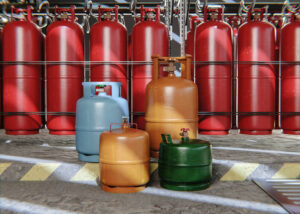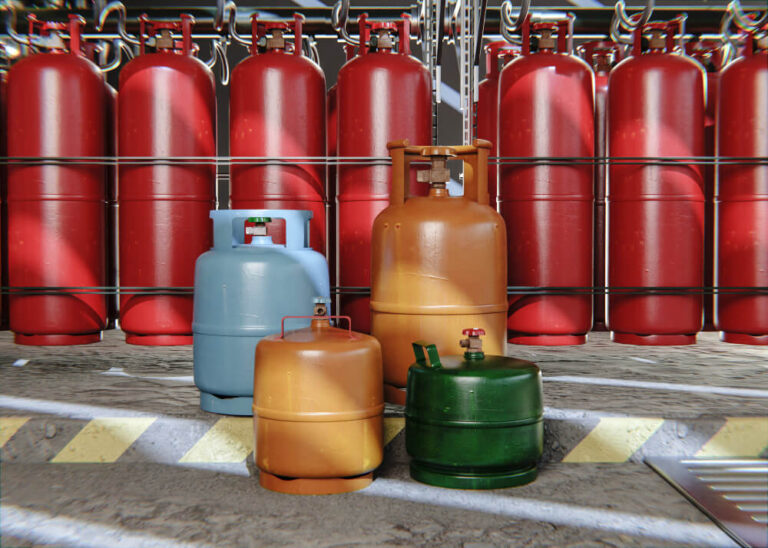The recent surge in demand for propane, coupled with supply chain disruptions, has precipitated a notable shortage of this essential fuel source. Propane, widely utilized for residential heating, agricultural applications, and industrial processes, has become increasingly scarce, prompting concerns among consumers and businesses alike.
As winter approaches and energy needs intensify, understanding the factors contributing to this shortfall is crucial for stakeholders. This article will examine the underlying causes of the propane shortage and its potential implications for various sectors.
What is Propane?
Propane, also known as liquefied petroleum gas (LPG), is a colorless, odorless, and flammable gas. It is a hydrocarbon composed of three carbon atoms and eight hydrogen atoms (C3H8). Propane is widely used as a fuel in various applications, including residential and commercial heating, cooking, and transportation. It is also used as a refrigerant, aerosol propellant, and feedstock in the petrochemical industry.
Propane is obtained from natural gas processing and crude oil refining. It is often stored and transported as a liquid under pressure, but it vaporizes into a gas at room temperature and atmospheric pressure.
Is There a Propane Shortage?
Yes, there is currently a propane shortage. While propane shortages can occur in specific regions during periods of extreme cold weather or supply chain disruptions, there is no widespread propane shortage currently.
However, it’s always a good idea to stay informed about local conditions and plan accordingly, especially if you rely heavily on propane for heating or other essential needs.
Why is There a Propane Shortage?
The propane shortage is caused by a combination of factors, including:
- Reduced Production: Propane production has been reduced due to several factors, including weather-related disruptions and maintenance issues at refineries.
- Increased Demand: Demand for propane has increased in recent years due to its growing popularity as a clean and efficient heating fuel.
- Supply Chain Disruptions: The COVID-19 pandemic has disrupted supply chains and made it more difficult to transport propane from production facilities to consumers.
Impact of Propane Shortage on Consumers
The propane shortage has greatly affected consumers. Many rely on propane for heating and cooking. A sudden shortage can disrupt their daily routines. Residential users find it tough to secure their supply, resulting in heightened anxiety and inconvenience.
Increased propane prices are another significant impact. Consumers face higher bills, straining their budgets. This becomes especially concerning during winter when propane consumption typically increases. The shortage has created a challenging situation for consumers, necessitating immediate solutions.

Government Response to the Propane Shortage
Governments worldwide have responded to the propane shortage. They understand the implications of the crisis. Hence, they’ve taken various measures to alleviate the situation.
In some regions, governments have loosened transportation restrictions. This allows more propane deliveries, helping meet demand. Emergency declarations have also been issued. This enables quicker and more flexible responses to the shortage.
Moreover, governments are encouraging energy conservation. They urge consumers to reduce propane usage where possible. This helps manage the demand-supply balance, mitigating the impacts of the shortage.
Steps Taken By Propane Companies To Address The Shortage
Propane companies, too, are playing their part. They are adopting various strategies to address the propane shortage. Their primary focus is on increasing supply and managing demand.
Some companies have increased their imports. They are sourcing propane from other regions to meet domestic demand. Others have ramped up production, attempting to reduce the supply deficit.
Simultaneously, propane companies are promoting efficient usage. They are educating consumers about smart propane use. This minimizes wastage and helps conserve the limited supply.
How to Deal with the Propane Shortage
Consumers can cope with the propane shortage in several ways. One is by practicing conservation—using propane more efficiently and reducing wastage. Another is by comparing prices and sourcing propane from the most affordable supplier. Additionally, exploring alternative heating methods can also help.
Future of the Propane Shortage
The future of the propane shortage is uncertain. Immediate concerns revolve around the availability and cost of propane. However, there is a growing recognition that long-term strategies are required to address the root causes of the shortage, including investing in production infrastructure, diversifying supply chains, and promoting energy efficiency.
Conclusion
The propane shortage is a complex issue. It requires the concerted efforts of consumers, businesses, and governments. By understanding the problem, we can work together towards effective solutions.
We must remember that every step matters when it comes to addressing a crisis like the propane shortage. Let’s act responsibly and consciously, ensuring a stable propane supply for all now and in the future.
Also Read:


